Appreciating student diversity: Exploring the application of an American systematic educational approach in Singapore, highlighting successes and obstacles.
Differentiated Instruction: Implementations and Experiences of Singapore Teachers
 How Findings from DI Can Help Administrators and Teachers?
How Findings from DI Can Help Administrators and Teachers?
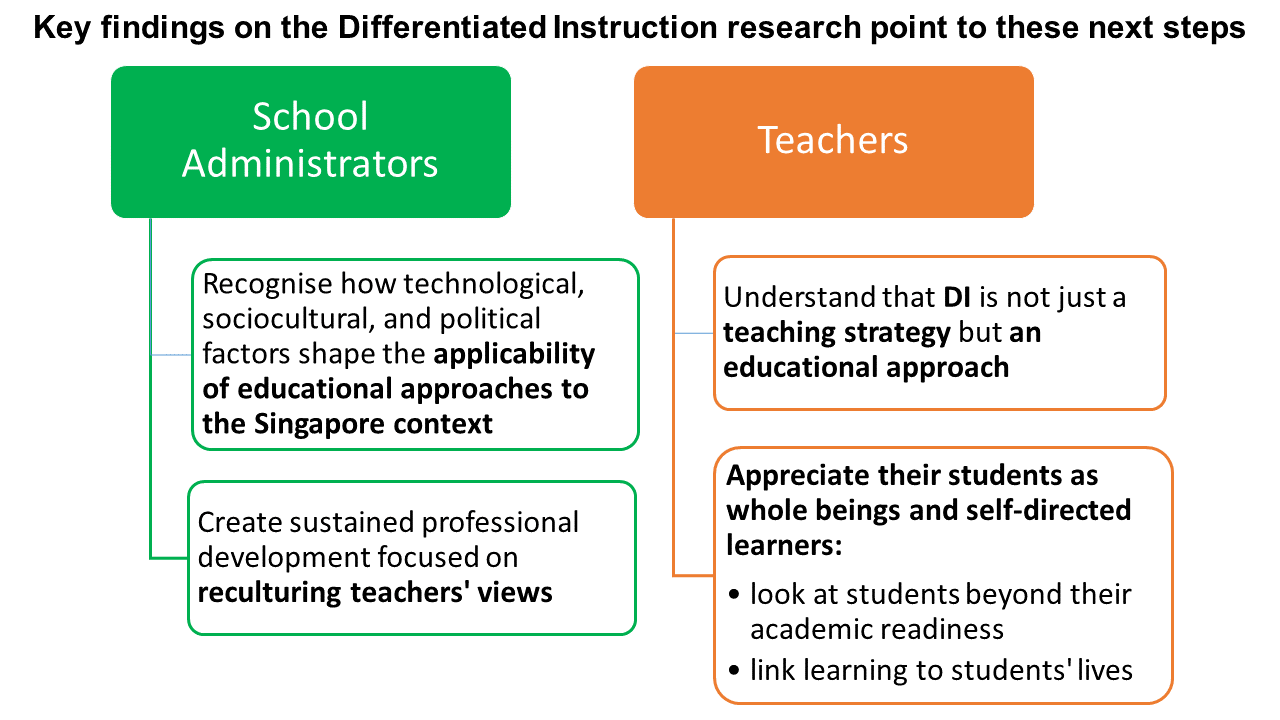
 Why Research DI in Singapore?
Why Research DI in Singapore? - Differentiated Instruction (DI) is a systematic educational approach in which teachers modify content, teaching and learning activities to honour the range of student backgrounds and maximise their learning opportunities and capacities (Tomlinson, 2017).
- DI is largely associated with the work of Carol Tomlinson in the United States and has been identified as a key SkillsFuture area of practice, hence rapidly gaining popularity in Singapore.
- As DI originates from the North American context, teachers implementing it in Singapore may face unique issues given the different local context.
- This project investigated how 10 teachers in Singapore implemented and experienced DI, including the successes and obstacles they faced.
- Studying teachers’ successes and challenges in implementing DI can help administrators and teachers to contextualise within Singapore to:
- better engage with the approach
- acknowledge its limits and potentials
 How Was the Research Carried Out?
How Was the Research Carried Out? Evidence from DI
Evidence from DI
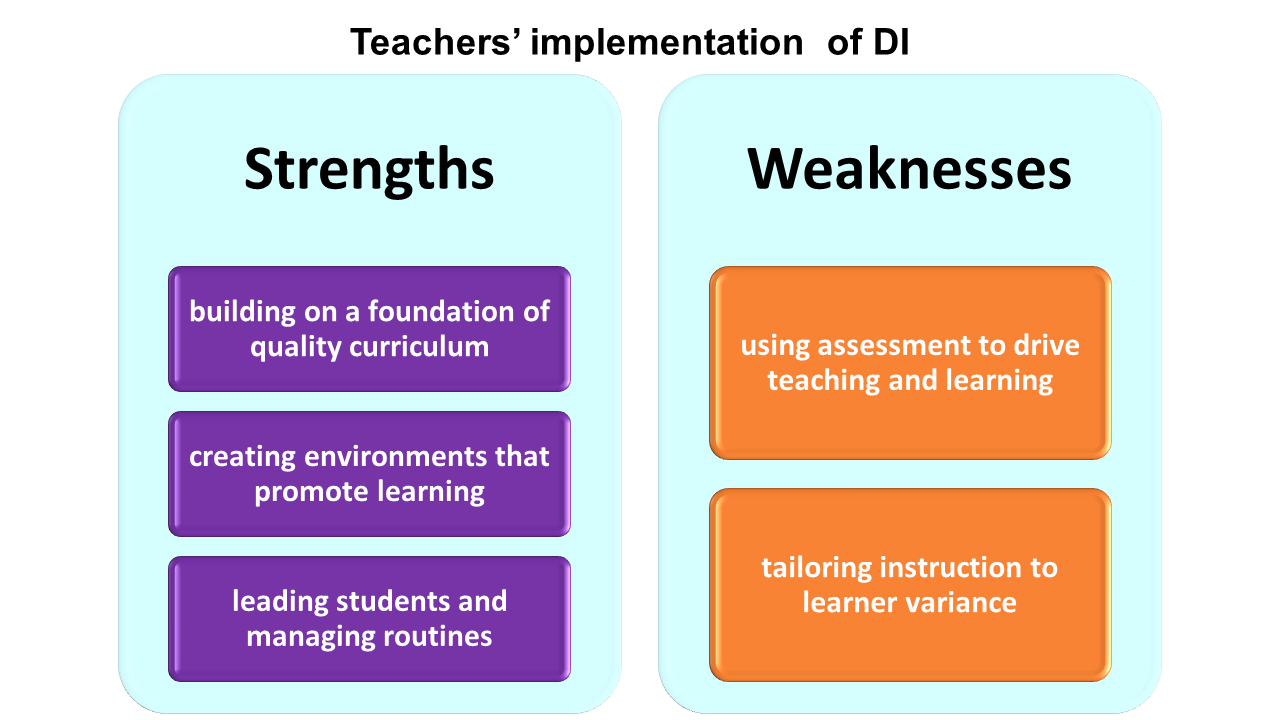
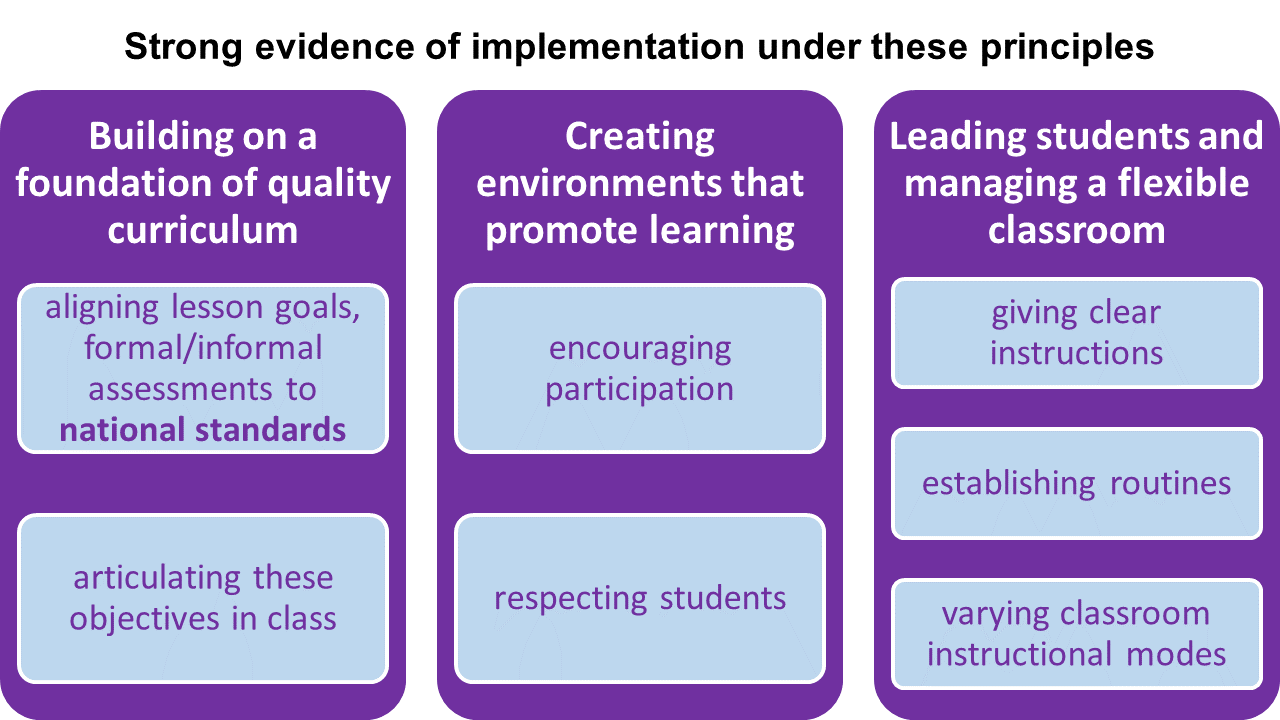
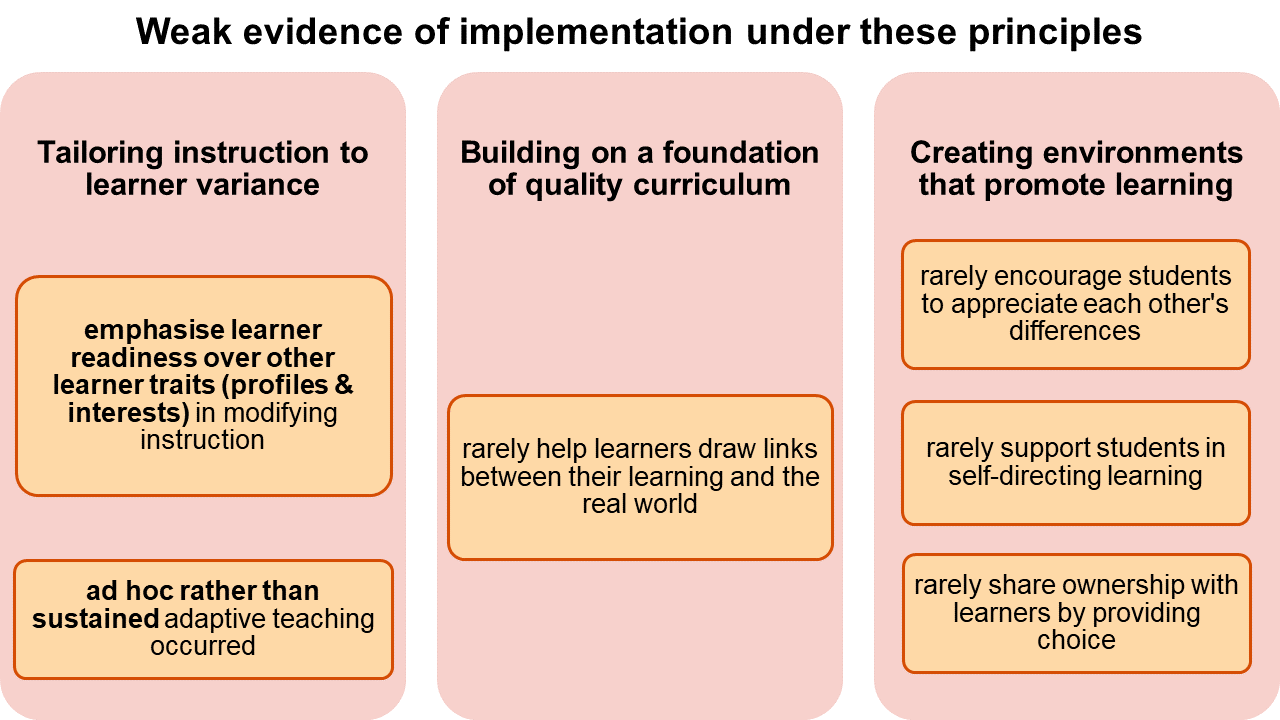
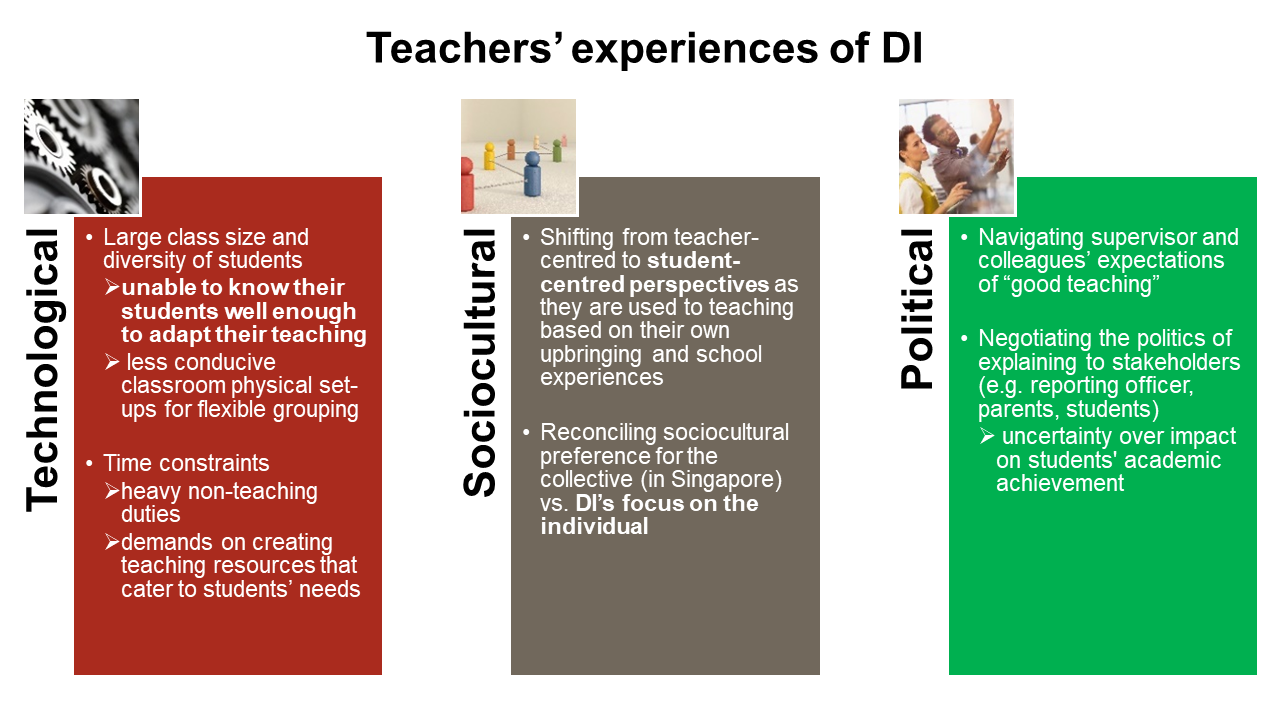
 What Does This Mean for DI Implementation in Schools?
What Does This Mean for DI Implementation in Schools?Implications for teachers
- Realise that DI is not just a teaching strategy; it is an educational approach based on certain philosophies and principles.
Implications for school administrators and managers
- Provide sustained and on-site professional development opportunities
- engage teachers in reculturing, and beyond mere technical strategies to identify:
- what shapes them as teachers
- what assumptions they have of teaching, learning, learners
- why and how they need to change
- Create risk-free environments to practice new educational approaches
- Ring-fence time:
- plan units of lessons in pairs/groups
- Set aside funding:
- purchase curricular resources or flexible classroom furniture
- Recognise:
- the potentials and limits of applying an educational approach from a different context to our local context
- educational change takes several years
- Be aware of technological, sociocultural, and political tensions
 Related Links
Related Links
 Further Readings
Further Readings
For educators interested in local research related to differentiated instruction, you may refer to:
Heng, T. T. (2023). Lessons on educational borrowing and change: Teachers’ implementation of differentiated instruction in Singapore. Pedagogy, Culture & Society. Advance online publication. https://doi.org/10.1080/14681366.2023.2166094 (Updated on 13 March 2023)
- Heng, T. T. Song, L. (2021). At the intersection of educational change and borrowing: teachers implementing learner-centred education in Singapore. COMPARE: A Journal of Comparative and International Education. doi.org/10.1080/00131881.2021.1874248
- Heng, T.T. Song, L. Tan, K.H.K. (2021). Understanding the interaction of assessment, learning and context: Insights from Singapore. Educational Research, 63(1), 65-79.
- Heng, T. T., & Song, L. (2020). A proposed framework for understanding educational change and transfer: Insights from Singapore teachers’ perceptions of differentiated instruction. Journal of Educational Change, 21(4), 595-622.
- Heng, M.A. & Fernandez, L. (2017). Re-examining differentiation: Big ideas and misguided notions. In (Eds.) Tan, K.H.K., Heng, M.A., Ratnam-Lim, C., Curriculum leadership by middle leaders (pp.104-124), Oxon, UK: Routledge.
For educators interested in Tomlinson’s differentiated instruction, you may refer to:
 Research Projects
Research Projects
Related projects
 Research Team
Research TeamTo learn more about this research, please contact Principal Investigator Ast/P Heng Tang Tang at tangtang.heng@nie.edu.sg.
Principal Investigator
Ast/ Prof Heng Tang Tang, Policy, Curriculum and Leadership (PCL), NIE
Co-Principal Investigator
A/P Tan Heng Kiat Kelvin, Learning Sciences and Assessment (LSA), NIE
Collaborators
Ms. Foong Poh Yi, Curriculum Planning and Development Division (CPDD), MOE
Research Associate
Ms. Lynn Song, PCL (formerly of NIE)
Acknowledgments
Differentiated Instruction was funded by the Education Research Funding Programme, National Institute of Education, Nanyang Technological University, Singapore (project no. OER 02/17 HTT). Any opinions, findings, and conclusions or recommendations expressed in this material are those of the author(s) and do not necessarily reflect the views of the Singapore MOE and NIE.
This knowledge resource was written by Ast/Prof Heng Tang Tang and Ms Monica Lim as of 24 May 2022; updated on 13 March 2023.
![]() Evidence from DI
Evidence from DI![]() Further Readings
Further Readings